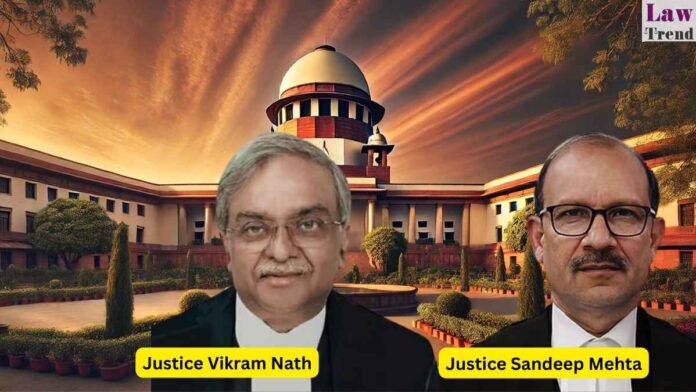The Supreme Court of India, in a judgment delivered on July 21, 2025, has upheld the validity of a registered Will and an oral family settlement in a long-standing property dispute among the legal heirs of Metpalli Rajanna. A bench of Justices Vikram Nath and Sandeep Mehta reversed a judgment by the High Court of
To Read More Please Subscribe to VIP Membership for Unlimited Access to All the Articles, Download Available Copies of Judgments/Order, Acess to Central/State Bare Acts, Advertisement Free Content, Access to More than 4000 Legal Drafts( Readymade Editable Formats of Suits, Petitions, Writs, Legal Notices, Divorce Petitions, 138 Notices, Bail Applications etc.) in Hindi and English.




